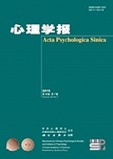To better address the issue of the relationship between scarcity and generosity, this study intends to approach this from the perspective of self-construction and investigate the role of face consciousness between the two. We argue that face consciousness plays a moderating role in the relationship between scarcity and generous behaviors. Specifically, individuals with low face consciousness experienced a significant negative effect of scarcity on generous behavior.
Three studies (comprising five sub-studies) were conducted to validate the hypotheses mentioned above. Study 1 (Study 1a and Study 1b) explored the influence of material scarcity on generous relational behavior. Building on Study 1, Study 2 (Study 2a, Study 2b) incorporated scenarios involving rule-compliance or charitable generous behavior, measured individuals’ scarcity mindsets, and manipulated the perceived importance of face to further investigate the relationships among these factors. Study 3 employed a questionnaire-based measure to investigate the roles of gaining face and giving face in the tendency toward scarcity and generous behavior.
The results demonstrate a significant main effect of scarcity on generous behavior, indicating that scarcity has a significant negative predictive effect on generous behavior. Based on previous research, this study proposes, from a psychological perspective, that being generous despite limited resources is more of a way for individuals to maintain their levels of self-esteem and social identity through generous actions, a manifestation of an individual’s defense mechanism. By studying the scarcity mindset of relatively impoverished individuals and conducting research related to prosocial behavior, it is possible to promote social harmony and scientifically manage relative poverty.




